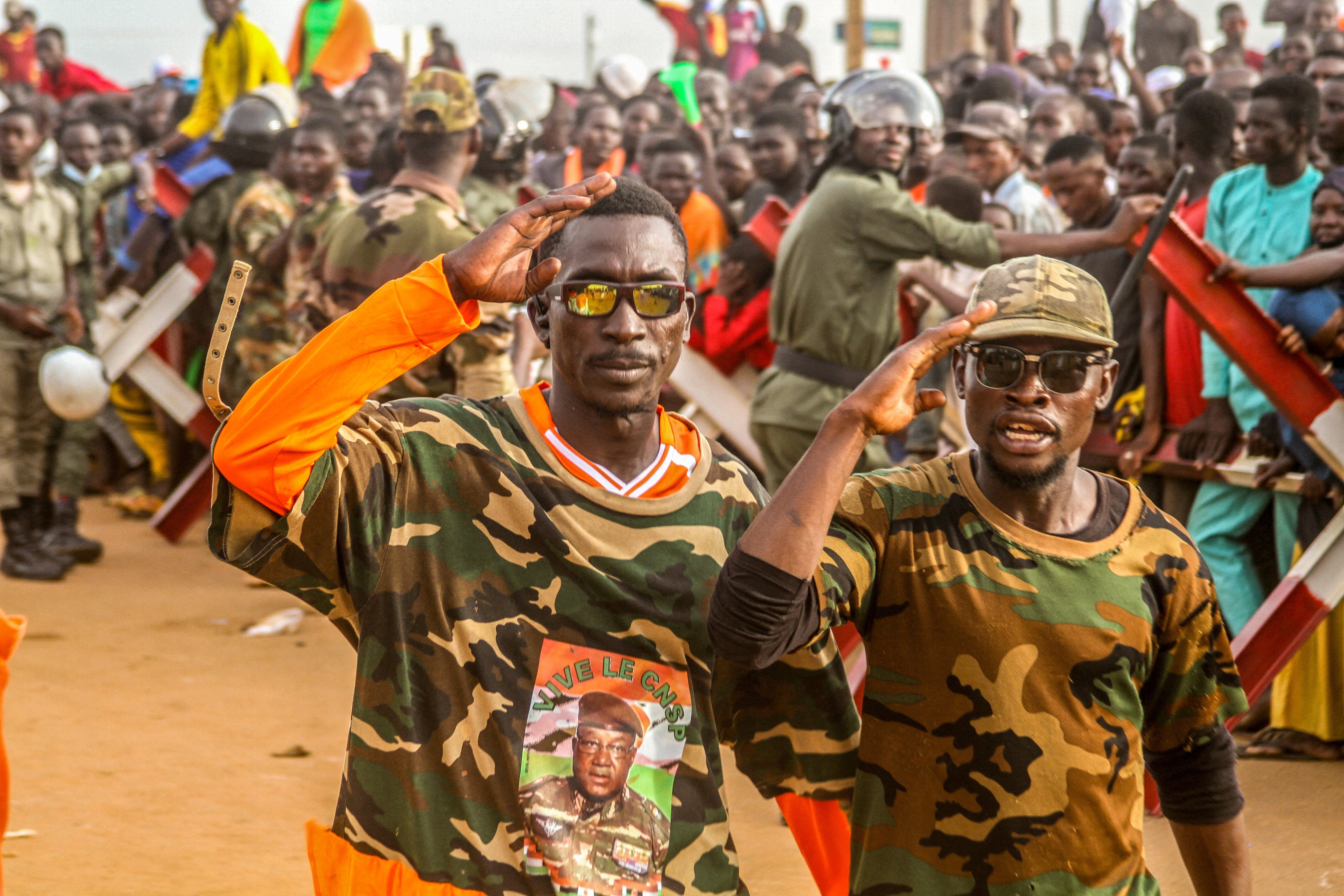Niger's junta supporters take part in a demonstration in front of a French army base in Niamey, Niger, on Aug. 11, 2023.
West African nations continue to dither on using force in Niger, even after last week’s resolution by the Economic Community of West African States to send in troops to restore the government of ousted President Mohamed Bazoum.
Instead, Nigerian President and ECOWAS Chairman Bola Tinubu is pursuing diplomatic efforts to resolve the crisis, including green-lighting a mission to Niger by a delegation of Islamic scholars, who met with coup leader General Abdourahamane Tchiani for several hours on Saturday.
Tchiani is playing up the historic relationship between the neighboring nations, claiming that the coup was “well intended” to avert an imminent threat to both Niger and Nigeria (presumably from jihadists) and that the two countries “were not only neighbors but brothers and sisters who should resolve issues amicably.”
Meanwhile, the Nigeria Labour Congress issued a statement on Sunday warning ECOWAS against the use of military force, claiming that it would cause instability and loss of life in the entire region and endanger the lives of Bazoum and his family.
Bazoum remains under house arrest with his wife and 20-year-old son, reportedly in dire conditions in an unlit basement. The ousted leader said they had gone without electricity for a week, had no access to medication, and that his family was subsisting on dry rice and pasta. While the junta allowed a doctor to visit Saturday and bring some food, Bazoum’s supporters fear the plan is to “starve him to death” and are pleading for Western nations to intervene.
But any such intervention is proving tricky. While France talked tough at the beginning of the coup, on Sunday the French defense minister said his country would support the latest diplomatic efforts by ECOWAS. Rising anti-French and pro-Russian sentiment in Niger is complicating efforts to resolve the crisis, now in its third week with no clear end in sight.
For more on what the US and Russia want for Niger, click here.
